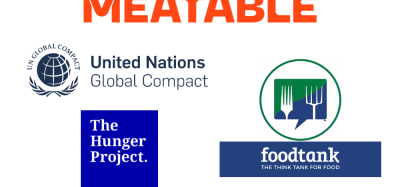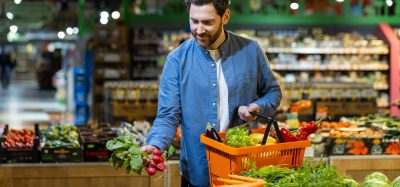Sustainable agriculture at Unilever
- Like
- Digg
- Del
- Tumblr
- VKontakte
- Buffer
- Love This
- Odnoklassniki
- Meneame
- Blogger
- Amazon
- Yahoo Mail
- Gmail
- AOL
- Newsvine
- HackerNews
- Evernote
- MySpace
- Mail.ru
- Viadeo
- Line
- Comments
- Yummly
- SMS
- Viber
- Telegram
- Subscribe
- Skype
- Facebook Messenger
- Kakao
- LiveJournal
- Yammer
- Edgar
- Fintel
- Mix
- Instapaper
- Copy Link
Posted: 3 December 2008 | David Pendlington, Sustainable Agriculture Programme Coordinator, Unilever | No comments yet
Sustainability has become increasingly important to Unilever, especially our food business – which includes brands such as Knorr, Lipton and Ben & Jerry’s ice cream. It is a core element in our Vitality Framework, which sets out how the company plans to achieve our mission of adding vitality to life by increasing social value and improving environmental impacts.
Sustainability has become increasingly important to Unilever, especially our food business – which includes brands such as Knorr, Lipton and Ben & Jerry’s ice cream. It is a core element in our Vitality Framework, which sets out how the company plans to achieve our mission of adding vitality to life by increasing social value and improving environmental impacts.
Sustainability has become increasingly important to Unilever, especially our food business – which includes brands such as Knorr, Lipton and Ben & Jerry’s ice cream. It is a core element in our Vitality Framework, which sets out how the company plans to achieve our mission of adding vitality to life by increasing social value and improving environmental impacts.
Brand teams also consider sustainability as part of their product strategies because consumers increasingly want to know where our ingredients have come from, how they were grown, and the impacts they have on both the environment and local communities. Consumers have become more aware of climate change, water scarcity and other threats. They want sustainability as well as quality, flavour and the other attributes we always aim to provide. They care about the conditions for workers in the fields and animal welfare as well as environmental impacts.
Supermarket groups such as Wal-Mart and Tesco have responded to these concerns and are increasingly looking for suppliers who can demonstrate progress on sustainability. “This is a competitive issue. We have to make sure our brands perform well on sustainability,” says Jan-Kees Vis, Director of Sustainable Agriculture.
There is also a fundamental reason why we need to care about and – act on – sustainability. Over two-thirds of Unilever’s raw materials come from agriculture. Ensuring a sustainable supply is essential for the long-term success of our business – especially as demand for food grows. The UN predicts that global demand for food will double by 2050. It is essential that this growth is achieved sustainably, without damaging the potential supplies for future generations. Unilever is committed to sustainable agriculture because without it, says Jan-Kees Vis: “A time will come when there simply aren’t enough crops available for the products Unilever makes.”
Sustainable agriculture
We launched our sustainable agriculture programme in 1995. Sustainability is also important in our manufacturing and distribution activities but we estimate that the impacts from growing the raw materials are many times more than in manufacturing and distributing them. For example, some 90 per cent of water used in the lifecycle of our food products is for irrigation.
What do we mean by sustainable agriculture? Farming that protects and improves the natural environment and livelihoods of local communities as well as being productive, competitive and efficient. It means using fewer agrochemicals and other inputs and protecting resources such as soil and water for the future.
We recognise that, by sourcing our raw materials ethically and sustainably, we can have a far-reaching, positive impact on our suppliers, growers and the environment.
It is important that consumers’ expectations and our commitment to sustainable agriculture are understood along the supply chain.
We see our suppliers as partners. Their engagement in our sustainable agriculture activities is essential for long-term success. Our message to them is: sustainable farming practices work because they are business-based and promote efficiencies, while at the same time benefiting both the environment and society.
Leading the industry
Unilever has pioneered sustainability in several areas of the food supply chain. We were instrumental in setting up the Marine Stewardship Council in 1998, which has been successful in protecting declining fish stocks. In 2003, Unilever and WWF were founder members of the Roundtable on Sustainable Palm Oil (RSPO). RSPO is an association of oil palm growers, processors and traders, consumer goods manufacturers, retailers, banks investors and NGOs. It works to promote the growth and use of palm oil in ways which do not harm natural habitats and communities, through cooperation along the supply chain and open dialogue with stakeholders.
In tea, we have introduced products certified by the Rainforest Alliance as sustainably grown, a respected international NGO. We are committed to sourcing all the tea in Lipton and PG Tips teabags from Rainforest Alliance™ certified sources by 2015.
Our efforts have been recognised consumers, NGOs and investors alike. Unilever has ranked top of the foods group of the Dow Jones Sustainability Index for nine years running.
Sustainable Agriculture Programme
Unilever‘s Sustainable Agriculture Programme works towards the goal that, ultimately, we will buy all raw materials from sustainable sources. This would mean:
- Farmers and farm workers can obtain an income they can live on and improve their living conditions
- Soil fertility of agricultural land is maintained and improved
- Water availability and quality are protected and enhanced
- Nature and biodiversity are protected and enhanced
The Programme began with a focus on improving our own growers’ practices but has since expanded to work with key third-party suppliers. We have developed best practice guidelines which are incorporated in our contracts with growers to ensure sustainability is embedded across the supply chain. The guidelines define aspects such as soil preparation, fertilisation and pesticide regimes and harvesting.
The sustainable agriculture team, which includes agronomists and other experts, is a centre of expertise in sustainable sourcing. It identifies opportunities to make production of our food crops more sustainable and provides growers and suppliers with expertise and tools. It is a link between suppliers and customers, helping suppliers understand how sustainability can benefit their businesses and helping customers understand how to meet consumers’ expectations. Since 2000, the Programme has been supported by a Sustainable Agriculture Advisory Board – 10 people from academia and NGOs who meet with Unilever twice a year to discuss global sustainable agriculture issues.
We track growers’ progress using eleven sustainable agriculture indicators, such as soil erosion, water quality and quantity, biodiversity, animal welfare and ‘social capital’.
Jan-Kees Vis says the rapid certification of tea estates by the Rainforest Alliance provides hard evidence of the progress that has been made: “Sustainability doesn’t happen overnight. It is only because we have laid strong foundations that we could meet the Rainforest Alliance’s demanding standards in record time.”
Crop focus
Our work initially focused on four key crops: palm oil, tea, tomatoes and vegetables, as well as milk for Ben & Jerry’s ice cream.
Palm oil: We are testing a variety of sustainable production techniques, including recycling organic waste from palm trees to improve soil quality and protecting biodiversity by planting native forests on plantations to act as wildlife corridors. All palm oil in Unilever products will be certified as sustainable by 2015.
Tea: In 2008, Lipton and PG Tips brands have built on sustainable agriculture work to launch products with Rainforest Alliance certification. Our experience helped to achieve this – quickly. Unilever tea plantations in Kenya and Tanzania have developed good agricultural practices such as reducing pesticide use and supporting natural diversity by maintaining forest strips in the plantations.
Tomatoes: We are working with growers in Brazil, China and the United States to develop sustainable farming practices. The programmes have focused on improving soil fertility, water management and pest control. Using drip irrigation has halved water consumption while increasing yield by up to 30 per cent. Drip irrigation helps boost crop yields by some 30 per cent and cuts the use of fungicide by 50 per cent and pesticide by 25 per cent.
Vegetables: We concentrate on reducing fertiliser use and pest control management using less chemicals and approaches such as crop rotation. Based on our lengthy experience with spinach in Italy, we have started working with vegetable suppliers to encourage their farmers to adopt sustainable practices.
Dairy: We have struck a deal with CONO Kaasmakers, an independent cooperative of dairy farmers in the Netherlands, to supply Ben & Jerry’s European ice cream operation with milk under our Caring Dairy programme. We take the cows’ welfare seriously and recognise that they produce more, and better quality, milk when they are happy and healthy.
The Caring Dairy programme is based around the Five Freedoms of animal welfare, and water is an important aspect. Ensuring freedom from thirst, hunger and malnutrition requires plentiful supplies of fresh water. We help the Caring Dairy farmers give their cows the best possible access to fresh drinking water, by teaching them how to:
- Ensure cows have access to enough water
- Provide sufficient drinking water troughs so all cows can drink when they want to
- Design the barn so cows can drink in a relaxed way.
While these have been our key programmes, sustainability work covers crops ranging from carrots to strawberries. We are working closer and closer with suppliers and customers to meet specific targets in tea and palm oil and more generally to advance the sustainability of all our raw materials. Consumers demand it – and so does the planet.









